Events
MARCH 8 2024
Celebrating the Unwavering Spirit of Women
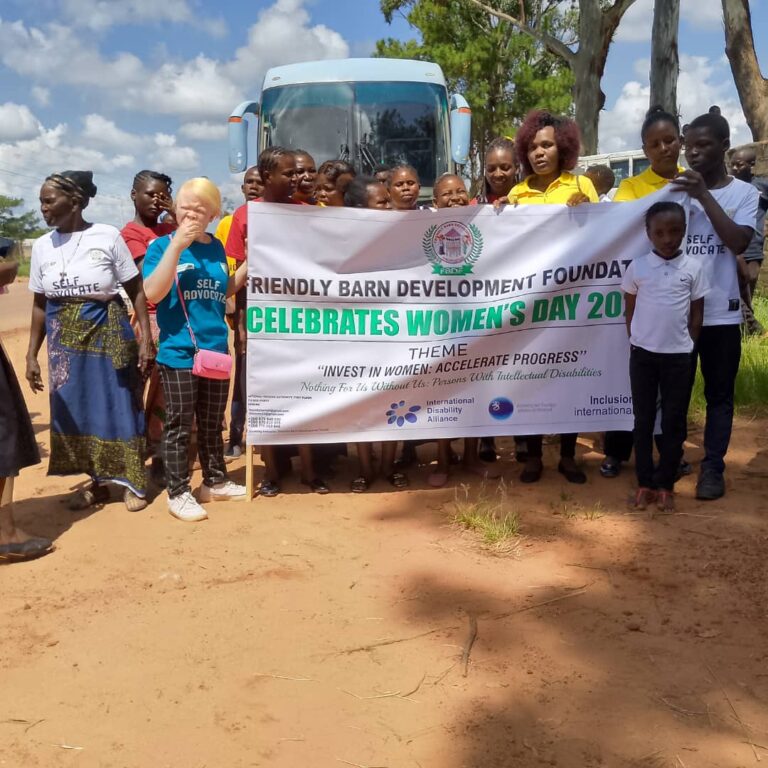
On March 8th, Friendly Barn Development Foundation (FBDZF) joined the global community in celebrating International Women’s Day. This year’s event was particularly special, as our self-advocates took an active role in supporting families of persons with intellectual disabilities, particularly mothers.
Our self-advocates stood in solidarity with these remarkable women, recognizing their unwavering dedication and love. They acknowledged the challenges that come with caring for a family member with intellectual disabilities and honored the mothers’ unrelenting commitment to providing love, support, and care.
Together, we celebrated the strength, resilience, and determination of women who are often the backbone of their families. We reaffirmed our commitment to supporting and empowering these women, ensuring they receive the recognition and resources they deserve.
#InternationalWomensDay #WomenEmpowerment #MothersOfChildrenWithDisabilities #FBDZF
March 12 2024
Celebrating International Youth Day with a Heart of Inclusion
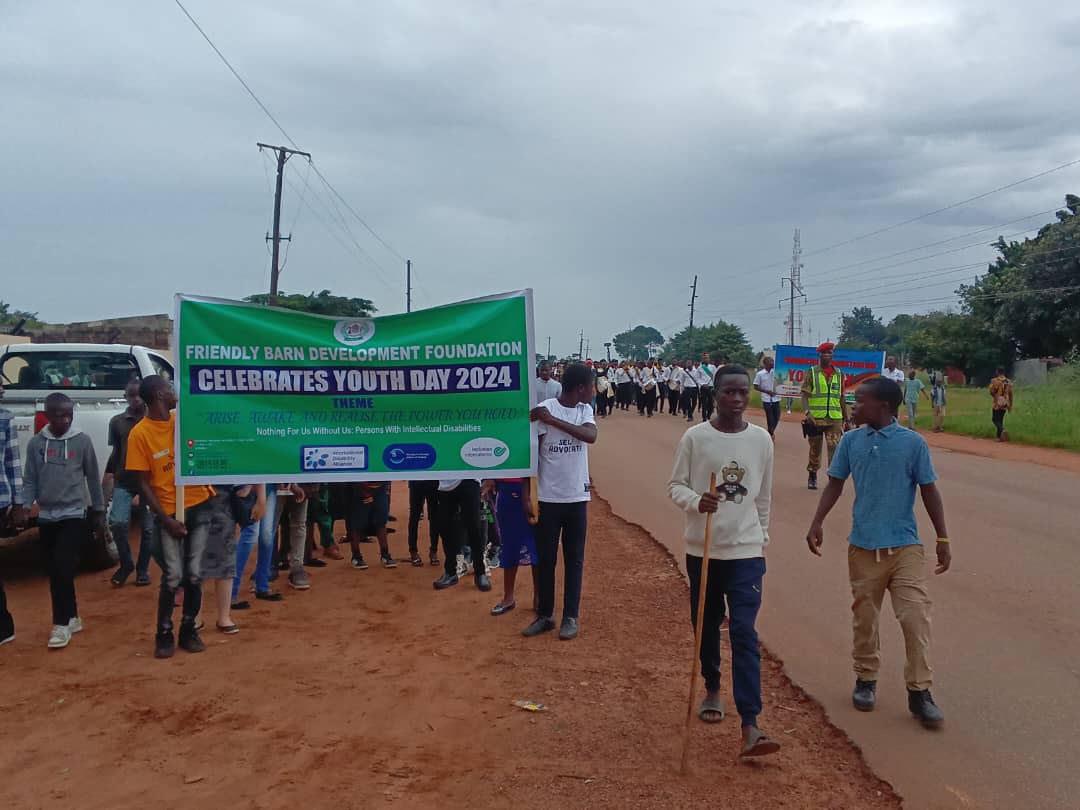
On March 12th, Friendly Barn Development Foundation (FBDZF) joined forces with the youth of Zambia to commemorate International Youth Day. This year’s celebration was particularly special, as we had the privilege of being part of a remarkable initiative that promoted inclusion and accessibility for children with disabilities.
In partnership with the Zambia Agency For Persons with Disabilities, we were honored to provide a safe space for the distribution of wheelchairs to children in need. Our tent served as a hub for housing and distributing these life-changing mobility aids, bringing joy and independence to many young lives.
This experience reinforced our commitment to creating a more inclusive society, where every individual has the opportunity to thrive. We are proud to have played a part in this wonderful initiative and look forward to continuing our efforts in supporting the youth and promoting
June 13 2024
International Albinism Awareness Day
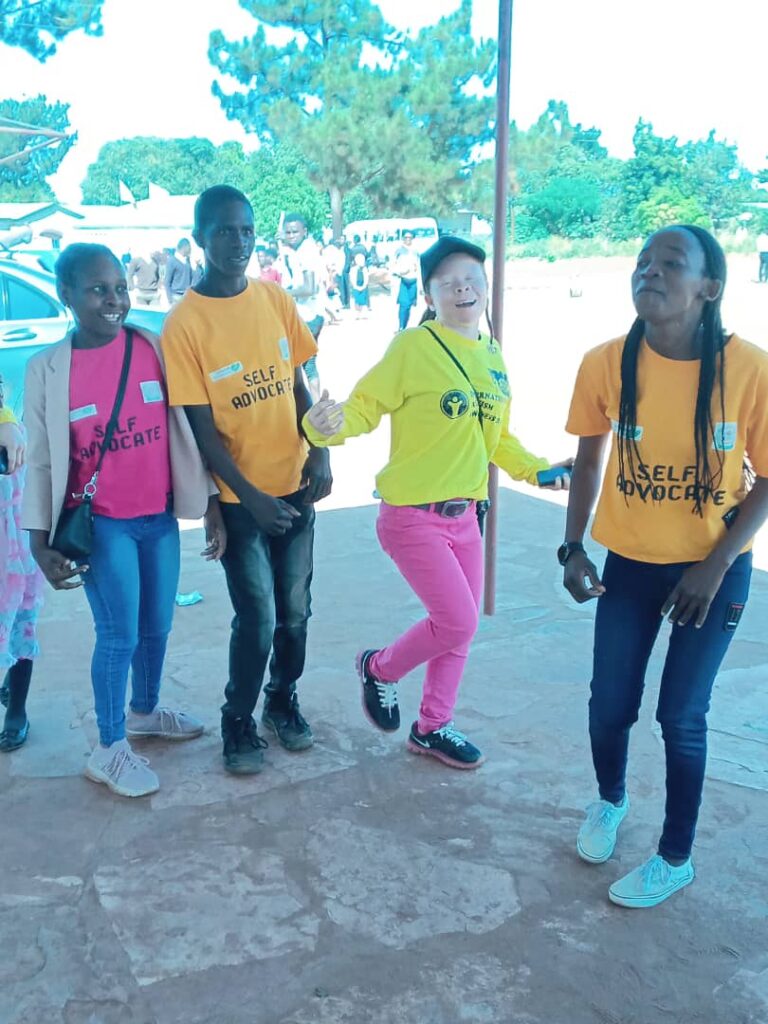
On June 13th, Friendly Barn Development Foundation (FBDZF) proudly participated in the commemoration of International Albinism Awareness Day. This global event aims to raise awareness and promote inclusivity for individuals with albinism. We were honored to be a part of this important initiative and reaffirm our commitment to supporting individuals with intellectual disabilities, including those with albinism. Our dedication to creating a more inclusive and accepting society remains unwavering
nd
Zambia's Representation at Geneva's CRPD Session: Advocating for the Rights and Inclusion of Individuals with Intellectual Disabilities
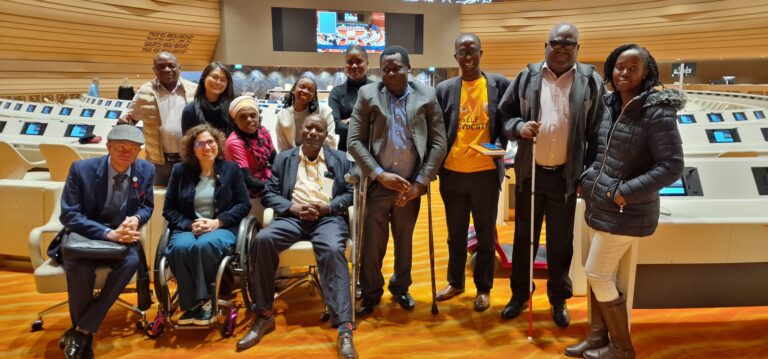
Earlier this year, we joined forces with other Organizations of Persons with Disabilities (OPDs) to represent Zambia in Geneva at the 30th Session of the Committee on the Rights of Persons with Disabilities (CRPD). We proudly presented our concerns and issues affecting persons with intellectual disabilities, advocating for their rights and inclusion. As an organization dedicated to empowering individuals with intellectual impairments, we were honored to be part of this global platform, sharing our experiences and recommendations to shape international policies and practices. Our participation in the CRPD session demonstrated our commitment to promoting the rights and well-being of persons with intellectual disabilities in Zambia and globally.
Our advocacy efforts at the CRPD session were guided by our vision of a society where persons with intellectual disabilities are valued, included, and empowered to reach their full potential. We emphasized the need for inclusive education, accessible healthcare, and equal employment opportunities for persons with intellectual disabilities. We also highlighted the importance of involving persons with intellectual disabilities in decision-making processes that affect their lives. By amplifying their voices, we aim to create a more inclusive and equitable society that values diversity and promotes human rights for all.
August 2023
Training of Self Advocates by Inclusion International in Kasama, Zambia
July 13, 2024
Empowering Inclusivity in Sports
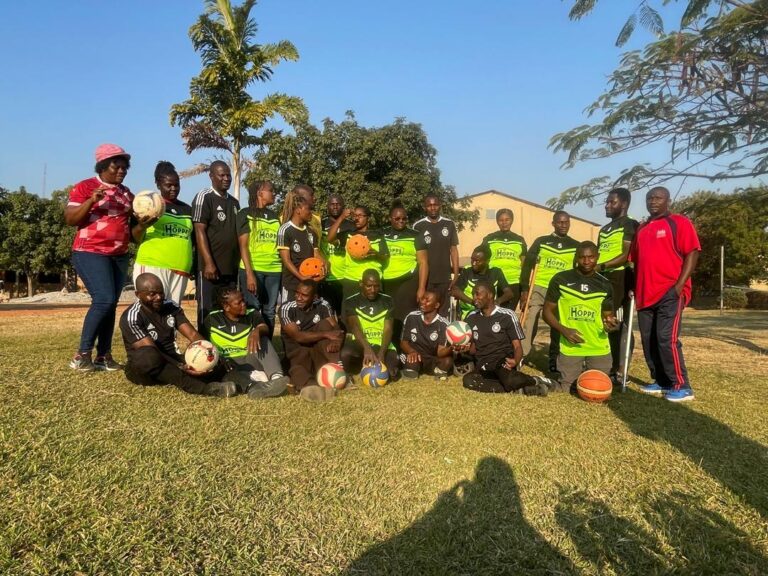
Empowering inclusivity in sports! Our FBDF staff recently attended a week-long training for the All Abilities Games organized by OM Zambia in Kabwe, from July 8th to 13th, 2024. This training aimed to promote diversity and inclusion in sports, and we’re excited to implement these values in our future programs.
#InclusiveSports #AllAbilitiesGames #FBDF #OMZambia
International Sign Langauge Day, 23rd September, 2024
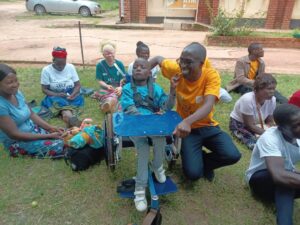
Friendly Barn Development Foundation (FBDF) Statement: International Sign Language Day 23rd September, 2024.
As Friendly Barn Development Foundation joins the global community in commemorating International Sign Language Day, we reflect on the importance of inclusion, acceptance, and unity of purpose. These values must be embraced by all societies to ensure true equality for everyone, especially persons with disabilities.
The recognition and use of sign language play a crucial role in this effort. While many countries have adopted sign language as one of their official languages, we call upon all nations to follow this progressive step. The integration of sign language into public life must go beyond recognition on paper—it should be embedded into our educational, healthcare, security, and administrative systems, ensuring full accessibility for all individuals, including those with hearing impairments.
Educational Institutions: A Call for Mandatory Sign Language Training
To achieve this goal, we propose that sign language education becomes a compulsory subject in all Colleges of Education, Universities, Medical Schools, and Police Training Colleges. It is essential for all teachers, healthcare professionals, and law enforcement officers to possess basic sign language skills. This will foster an inclusive environment where persons who are deaf or hard of hearing can access education, healthcare, and legal services without barriers or discrimination.
Frontline Staff: Inclusion in Government and Private Sectors
Equally important is the need for all government and private sector front-line officials to acquire proficiency in sign language. Front desk personnel, who are often the first point of contact for citizens, must be equipped to serve everyone, including persons with hearing impairments. This move will transform inclusion from a concept into a practice, reinforcing our commitment to creating accessible environments in both the public and private sectors.
The Role of the Media: Accessible Communication for All
In the realm of communication, the role of media houses is critical. We commend those in Zambia, including the national broadcaster, who have begun incorporating sign language interpreters in their programming. This initiative should be embraced by all media outlets to ensure that persons with hearing impairments are not excluded from news, entertainment, and other forms of information.
Nothing About Us Without Us
As we commemorate this day, let us be reminded of the rallying cry of the disability movement: “Nothing about us, without us!” Persons with disabilities must be central to decision-making processes that affect their lives. We must advocate for their inclusion in every sector of society—politics, education, healthcare, employment, and more. Only through this commitment can we build societies that are truly inclusive and just.
Friendly Barn Development Foundation urges policymakers, educational institutions, the private sector, media outlets, and the global community at large to prioritize sign language and ensure that all persons, regardless of their abilities, have equal access to opportunities and services. This International Sign Language Day is not just a celebration but a call to action for a world where diversity is valued and inclusion is practiced.
Let us walk together toward a future where sign language is embraced by all nations, and where no person is left behind.
Together, we can make inclusion a reality.
#InclusionForAll #InternationalSignLanguageDay #UnityInDiversity
Catchphrase
Event Timeline
Come explore the amazing aspects of life in our community! Celebrate diversity through captivating stories and experiences that bring people together. There are exciting opportunities for connection while we honor every individual’s journey, especially those with unique challenges. Our commitment to uplifting voices and advocating for rights is key. Join us for a day where we share joy, inspire others, and foster a spirit of acceptance.
Event Title
Event Highlights
Unmissable moments await.
Program Insights
Learn about our featured activities.
Keynote Sessions
Engaging discussions by leaders.
Free Workshops
Hands-on learning for all.

Celebration Name
Gathering Information
Stay updated on agenda.
Networking Opportunities
Meet others who share your passion.
Volunteer Roles
Join our outreach efforts.
Feedback and Support
Your thoughts matter!

Event Heading
Session Details
Explore session topics.
Culinary Experiences
Delight in special treats.
Cultural Showcases
Celebrating our community's heritage.
Interactive Fun
Engaging activities for all ages.
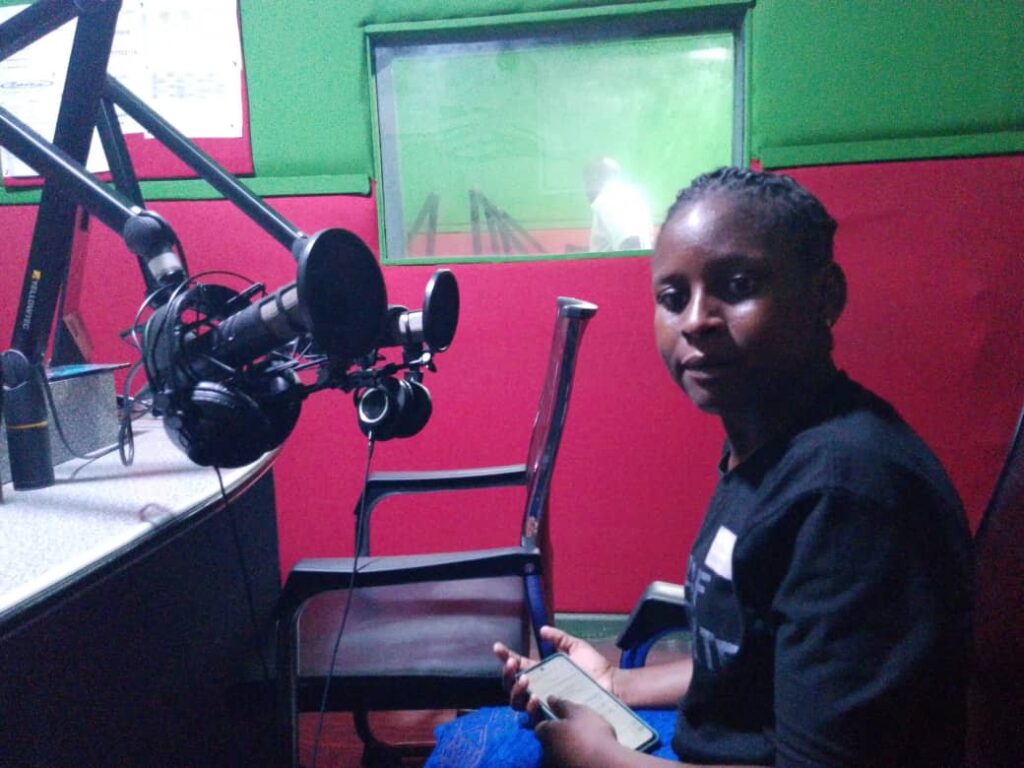
Introduction
Introduction
In Zambia, particularly in the Kasama District of Northern Province, the plight of children with intellectual disabilities remains a critical issue. Despite global advocacy for inclusive education, many children with intellectual disabilities face overwhelming barriers that hinder their access to quality education. These barriers persist despite policy frameworks meant to protect their rights.
Friendly Barn Development Foundation, a local organization for persons with intellectual disabilities, is leading the advocacy efforts to address these challenges. As a member of Inclusion International, a global organization that champions the rights of persons with intellectual disabilities, the Foundation is working tirelessly to bring the voices and experiences of these children and their families to the forefront.
The Challenges of Accessing Education
- Systemic Rejections and Dropouts
Families with children who have intellectual disabilities often face a harsh reality when attempting to enroll their children in school. Many schools either outright reject these children or provide unsupportive environments, leading to their eventual expulsion or dropout. This widespread rejection is attributed to a lack of preparedness, understanding, and willingness to support the learning needs of children with intellectual disabilities. - Educators’ Attitudes and Capacity
A major factor contributing to the exclusion of these children is the negative attitudes held by educators. Most teachers are untrained in special education, and some harbor misconceptions about the capabilities of children with intellectual disabilities. These children are often labeled as unteachable, resulting in alienation and neglect within the classroom. The shortage of trained staff in inclusive education further exacerbates this problem, leaving many schools unequipped to support children with special learning needs. - Failure of Inclusive Education
Although Zambia has embraced inclusive education on paper, its implementation remains inadequate. The idea of inclusion exists in policy but is rarely realized in practice. Schools often lack the necessary resources, such as specialized staff, adaptable teaching methods, and supportive materials, to provide a genuinely inclusive learning environment. This gap between policy and practice leaves children with intellectual disabilities marginalized within the education system. - Abuse and Neglect
Tragically, children with intellectual disabilities are often subjected to abuse in educational settings, further compounding their exclusion. Teachers and school staff may react negatively to behavioral challenges, sometimes resorting to emotional or even physical abuse. This treatment drives many families to withdraw their children from school, contributing to their continued marginalization. - Inaccessible Learning Materials
Zambia’s curriculum, materials, and examination formats are generally inaccessible to children with intellectual disabilities. The absence of easy-to-read formats and other supportive tools prevents these children from fully participating in the learning process. Without access to appropriate learning materials, many children struggle to succeed academically, further limiting their future opportunities for integration into society.
The Call for Action
Addressing these challenges requires a multi-faceted approach, aimed at transforming both the education system and societal attitudes toward children with intellectual disabilities.
- Training Educators: Providing specialized training for teachers to equip them with the skills and knowledge needed to support children with intellectual disabilities is crucial. Inclusive education training should be mandatory for all educators to foster a more supportive and understanding school environment.
- Community Awareness Campaigns: Myths and misconceptions about intellectual disabilities persist in many communities. Targeted campaigns can raise awareness, dispel harmful stereotypes, and promote a more inclusive culture that recognizes the value of every child, regardless of their abilities.
- Policy Implementation: Policies supporting inclusive education must be fully implemented and supported with adequate resources. This includes hiring specialized staff, modifying school infrastructures, and integrating adaptive teaching methods that cater to the needs of all children.
- Accessible Learning Materials: It is essential to develop and distribute easy-read formats and other accessible educational materials to support the learning of children with intellectual disabilities. These tools can make a significant difference in enabling these children to engage meaningfully with the curriculum.
- Parental Support Networks: Parents and caregivers should have access to support networks where they can share experiences, receive guidance, and strengthen their advocacy efforts. These networks can provide emotional support and practical solutions for navigating the educational landscape.
- Inclusion of Organizations of Persons with Intellectual Disabilities: It is essential to involve organizations that represent persons with intellectual disabilities in every phase of planning and implementation. Friendly Barn Development Foundation, as an organization that understands the unique challenges faced by persons with intellectual disabilities, plays a crucial role in shaping policies and practices that meet the real needs of these individuals. The mantra “Nothing for us without us” must guide all decision-making processes, ensuring that the experiences and insights of persons with intellectual disabilities are at the core of advocacy efforts.
Conclusion
The right to education for children with intellectual disabilities in Zambia remains largely unfulfilled, particularly in rural regions like Kasama District. Without immediate action, this marginalized group will continue to be denied the opportunity to learn, grow, and thrive within society. It is our collective responsibility to challenge the current systems, implement effective policies, and promote an inclusive educational environment where every child, regardless of ability, is valued and supported. Only through continued advocacy, led by organizations such as Friendly Barn Development Foundation, can we bridge the gap between policy and reality and ensure that education becomes a true right for all.
